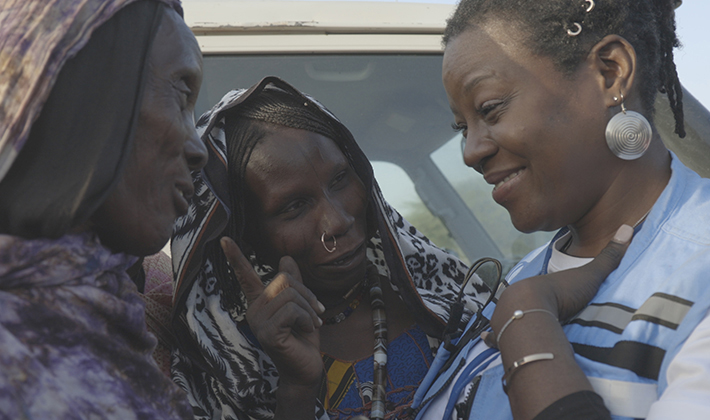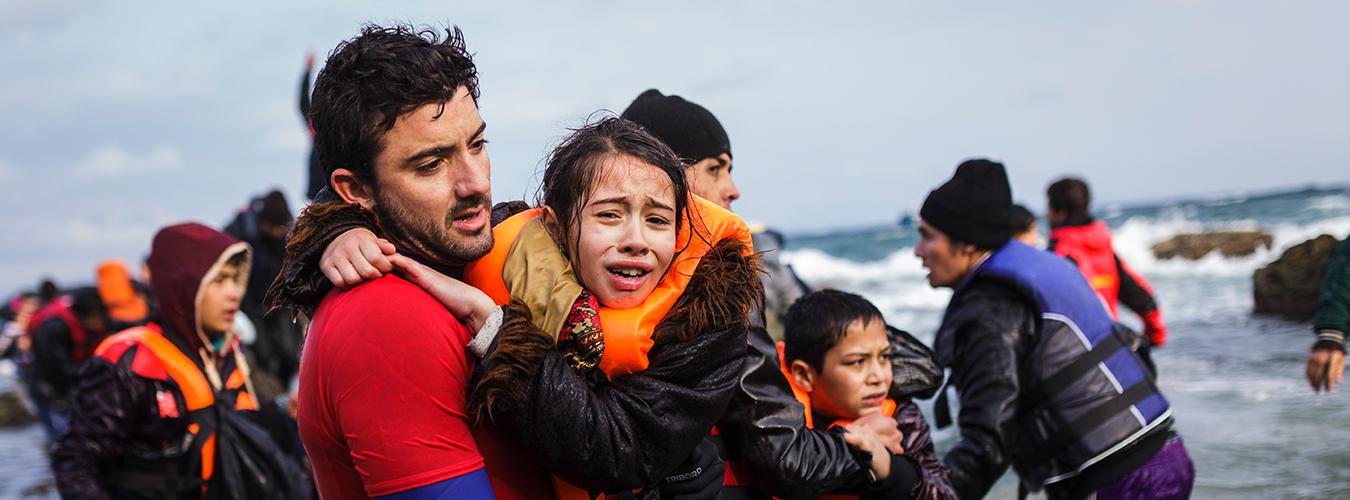WHAT IT TAKES
Every hour of every day, the United Nations is delivering aid to alleviate the suffering of people caught in crises across the globe.
Although the humanitarian challenges continue to grow, so does the commitment of humanitarians.
On 13 February, the United Nations launches a global campaign called ‘What It Takes’ to shine a light on the incredible impact and reach of the UN humanitarian response, and the passion and drive of the people who make it happen.
What does it take to get food, medicine, emergency education and shelter to record numbers of people, in some of the most dangerous places on earth?
This incredible response is powered by compassion. It is driven by individuals who put themselves on the front lines to help women, men and children in desperate need to survive war or natural disasters or rebuild lives from the rubble.
These are ordinary people doing extraordinary work. They have what it takes to help the world live up to its commitment to save and improve lives.
They may work thousands of miles from their home – or be answering a call to help their own communities. They often work in the world’s most difficult and deadly settings, deep in inhospitable terrains, taking daily risks while sacrificing comforts and spending weeks and months away from home. All in an effort to bring relief to people during their darkest hour of need.
By paying special tribute to UN humanitarians throughout the world, we honour the strength, determination and perseverance of those poised to respond when crises hit.
They are UN humanitarians – and they have #WhatItTakes.
DID YOU KNOW?
- The United Nations provides food and assistance to 91.4 million people in 83 countries around the world.
- The United Nations supplies vaccines to almost half – 45 per cent – of the world’s children, helping to save 3 million lives every year.
- The United Nations assists and protects 71.4 million people fleeing war, famine and persecution.
- This year, 1 in every 45 people on the planet will need humanitarian assistance, and most of that assistance will be coordinated through the United Nations.
MEET CLAUDINE JOSEPH – A UN HUMANITARIAN IN CHAD

Claudine Joseph became a humanitarian at home, in Haiti. When a devastating earthquake razed her city to the ground in 2010, killing 230,000 people, she was compelled to join the humanitarian response.
It is a decade later and she now works in an insecure region of Chad. Claudine helps coordinate the humanitarian response to save lives and alleviate suffering from a vicious cycle of conflict, poverty and climate-impacted drought.
“Living here requires strength, personal resilience, passion, empathy and an ability to lead in difficult circumstances,” she says. “This is a wonderful place and the people here need so much support – there is so much potential in this region if we could create opportunities to tap into it.”
Claudine loves her work, but it comes at a huge personal cost: separation from her teenage son Michael. A single mother, she asked her sister Lise in New York to look after him when she is in Baga Sola, a restive area of Chad, and he is in school in Brooklyn.
Claudine visits her son every two to three months. “I worry I have lost the most important moments of his childhood. And now he is already a teenager. Some parts will always be missing,” she says. “But the heritage I pass to him is that I’m just trying to do my part for a better world. My motto is: Do small things with passion and a big heart.”
TAKE PART
We all owe UN humanitarians, such as Claudine a debt of gratitude. And we owe it to the people they serve to do everything we can to enable their life-saving work to continue.
Everyone is invited to take part in the campaign and express their appreciation by sharing content on social media and #WhatItTakes to deliver assistance to those who need it most.
Check out the campaign toolkit.
DONATE
The UN Central Emergency Relief Fund (CERF) is one of the fastest and most effective ways to ensure that people caught up in crises get help. It gathers contributions from donors around the world – governments, international organizations, the private sector and individuals – into a single fund that’s ready to go whenever a crisis hits and people need our help.
Since its creation, CERF has provided more than $6 billion in life-saving assistance in more than 100 countries and territories. In 2019 alone, CERF raised $800 million.
Your contribution will help to save lives and reach the millions of people trapped in disasters and conflict by providing them with urgently needed food, water, health care and much more.
Help us help in time. Donate to CERF.
Every hour of every day, the United Nations delivers aid to alleviate suffering in crises across the globe. On 13 February, find out #WhatItTakes

